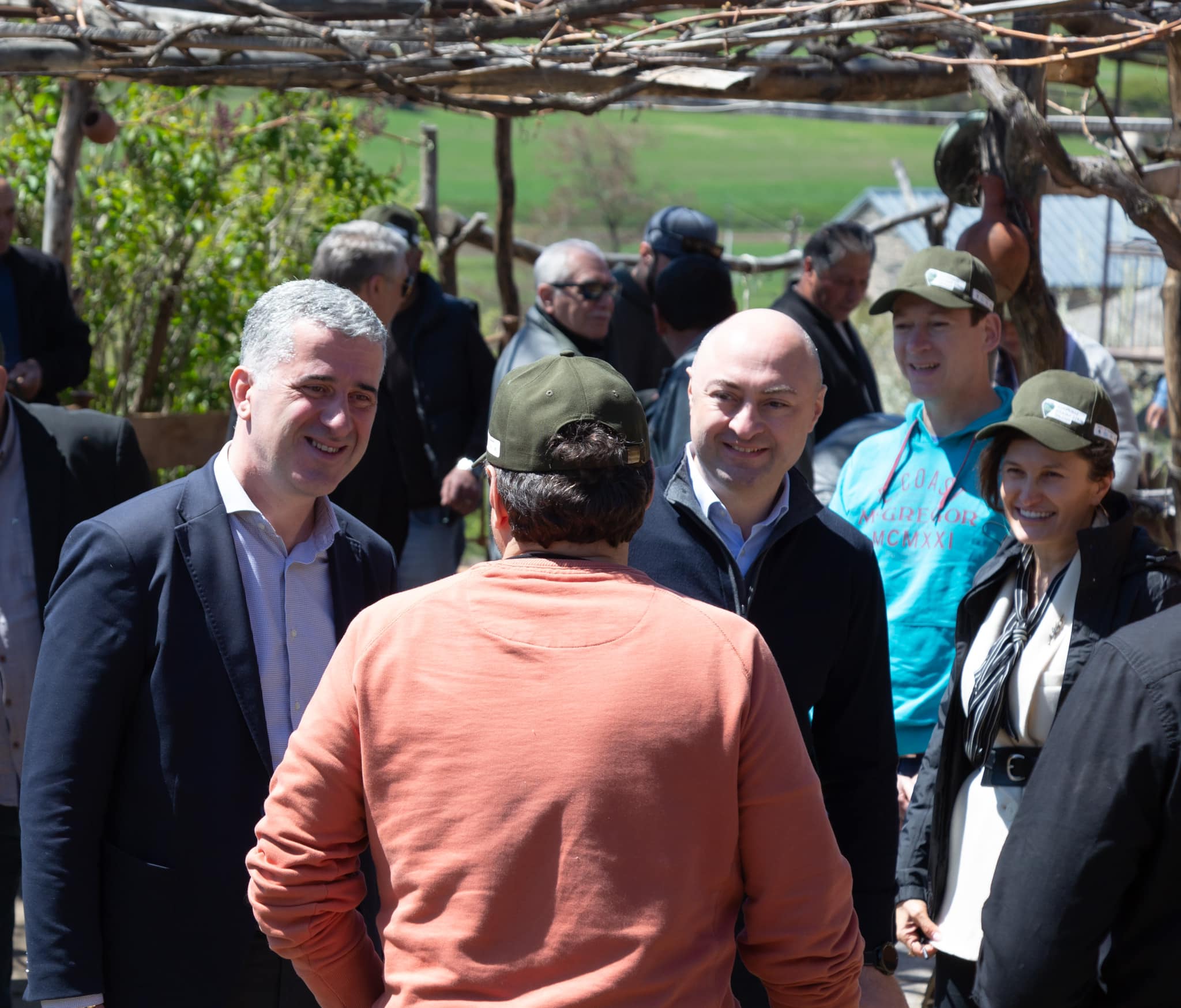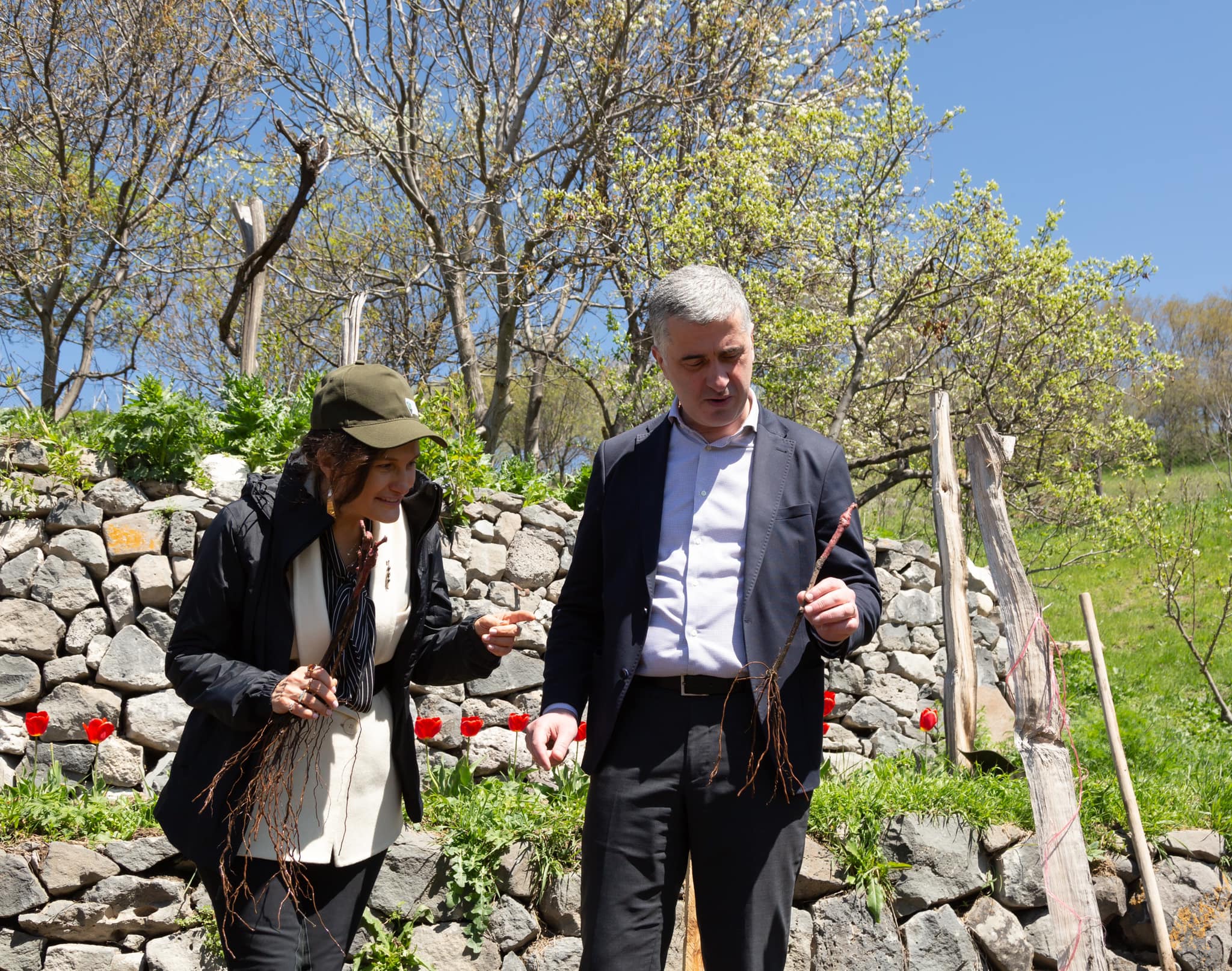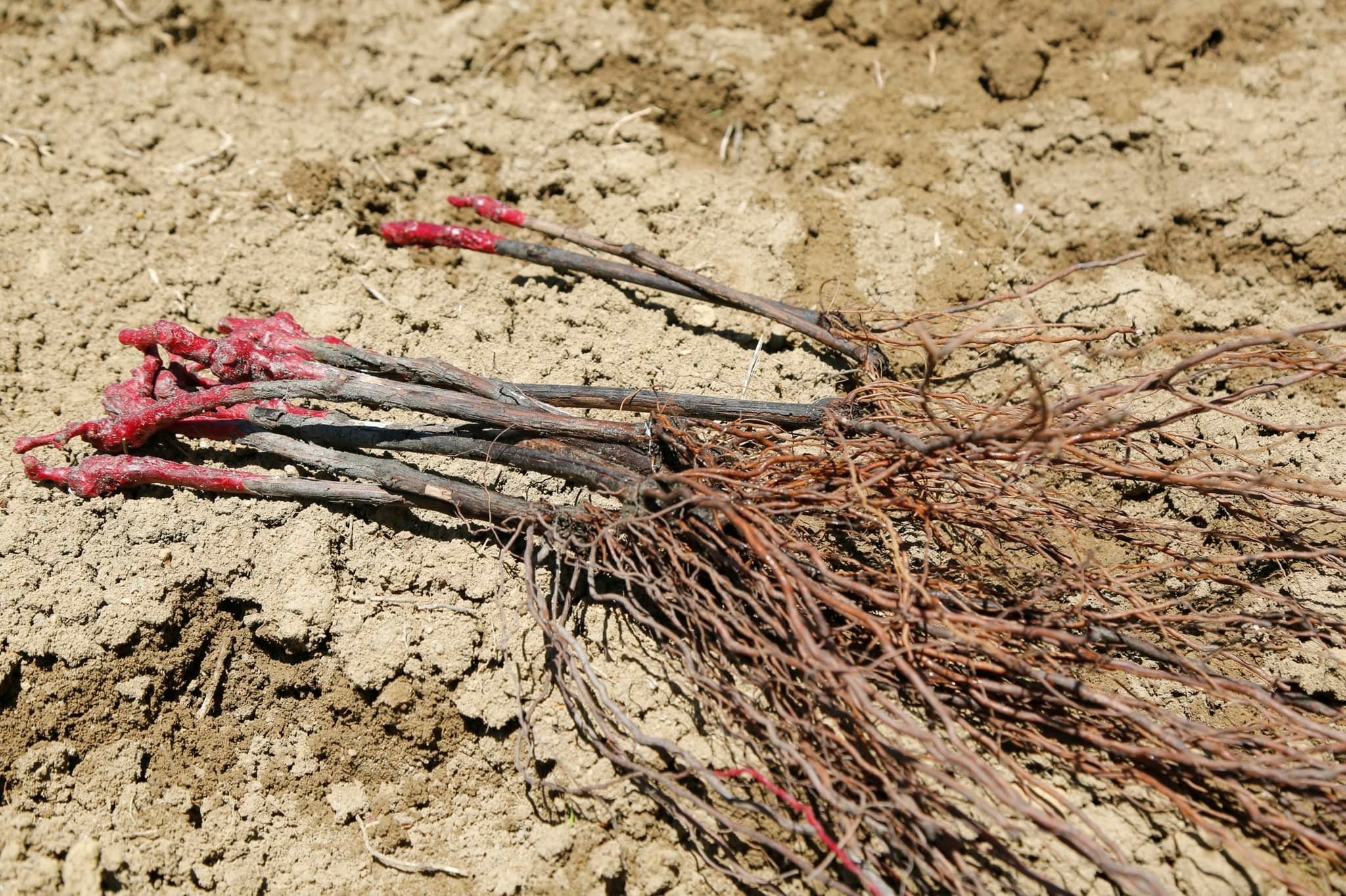News
Otar Shamugia: Cultivation of Meskhetian vine begins in the Samtskhe-Javakheti region
The Minister of Environmental Protection and Agriculture, Mr. Otar Shamugia, visited Samtskhe-Javakheti region, where he participated in the process of planting vines.
The deputy state representative of the region Davit Vardiashvili, the mayor of Aspindza Rostom Magrakvelidze, representatives of the local government, and relevant agencies of the Ministry of Environment Protection and Agriculture, accompanied the minister.
The project "Sustainable Management of Agricultural Biodiversity in Vulnerable Ecosystems and Rural Communities of Samtskhe-Javakheti Region in Georgia," funded by the Global Environmental Fund (GEF), involves the free transfer and cultivation of endemic vine seedlings to farmers in Samtskhe-Javakheti region.
"One of our top priorities is the restoration and protection of agrobiodiversity. Therefore, we are carrying out a wide range of initiatives, including a project we have launched this year intending to return Meskhetsian vine species and Georgian indigenous wheat types to their historical homeland. We will provide locals with free vine seedlings and wheat seeds for production within the initiative.
It is worth noting that we have discovered 26 different types of Meskhetsian vine species so far. Most of them have been restored in our unique Jighaura base, where vital scientific research and other related activities are conducted. This enables us to carry out programs to protect our biodiversity on the one hand, and, on the other hand, help residents to improve their socio-economic conditions," stated Minister Shamugia.
Within the project, a competition was announced in March 2023, and 14 beneficiary farms were selected, which included 96 farmers. Planting vines on the terraces has already started; 3 thousand saplings are planted in different locations.
"The campaign "Restoring the Roots of the Meskhetian vine species" is implemented with the Ministry of Environmental Protection and Agriculture. Its goal is to preserve, restore, and include the Meskhetian vine and wheat varieties in the cycle of agro-tourism. Restoring the tradition lost four centuries ago is complex, and we plan to do it gradually.
This is a campaign that has a global character because Meskhetian grapes and wheat are of global importance; From the standpoint of agro-diversity, these are products with high values, and their return to gastro products and the agro-tourism sector is the explicit goal of the project", said Sofo Akhobadze, executive director of the project.
Restoration and cultivation of the Meskhetian grape variety are of vital importance. The search, restoration, and protection of local aboriginal breeds on the verge of extinction occurred at the Jighaura base of the Scientific Research Center of the Ministry of Environmental Protection and Agriculture. The "Kartu" foundation donated this unique base to the scientific-research center for free in 2014.
With the support of the project "Sustainable Management of Agricultural Biodiversity in Vulnerable Ecosystems and Rural Communities of Samtskhe-Javakheti Region in Georgia," funded by the Global Environmental Fund, small and medium-sized farmers are allowed to cultivate and bring back to production the restored endemic varieties in the region. It is also planned to establish a nursery to ensure the demand for seedlings. And the promotion of Meskhetian grape varieties.
The project is initiated by the Ministry of Environmental Protection and Agriculture of Georgia and is financed by the Global Environment Facility (GEF). The United Nations Environment Program (UNEP) implements the project through the Caucasus Regional Environmental Center (REC).



